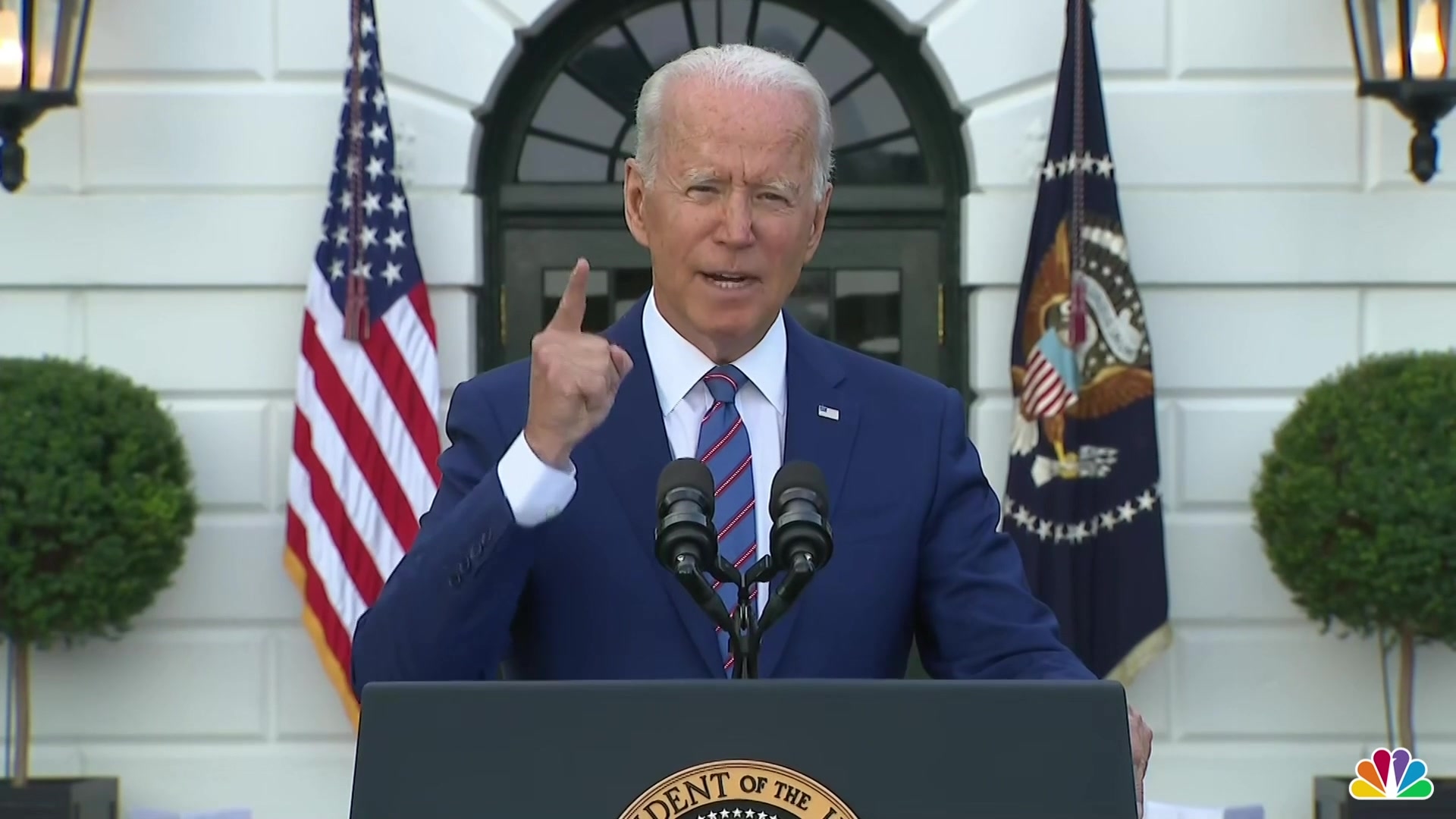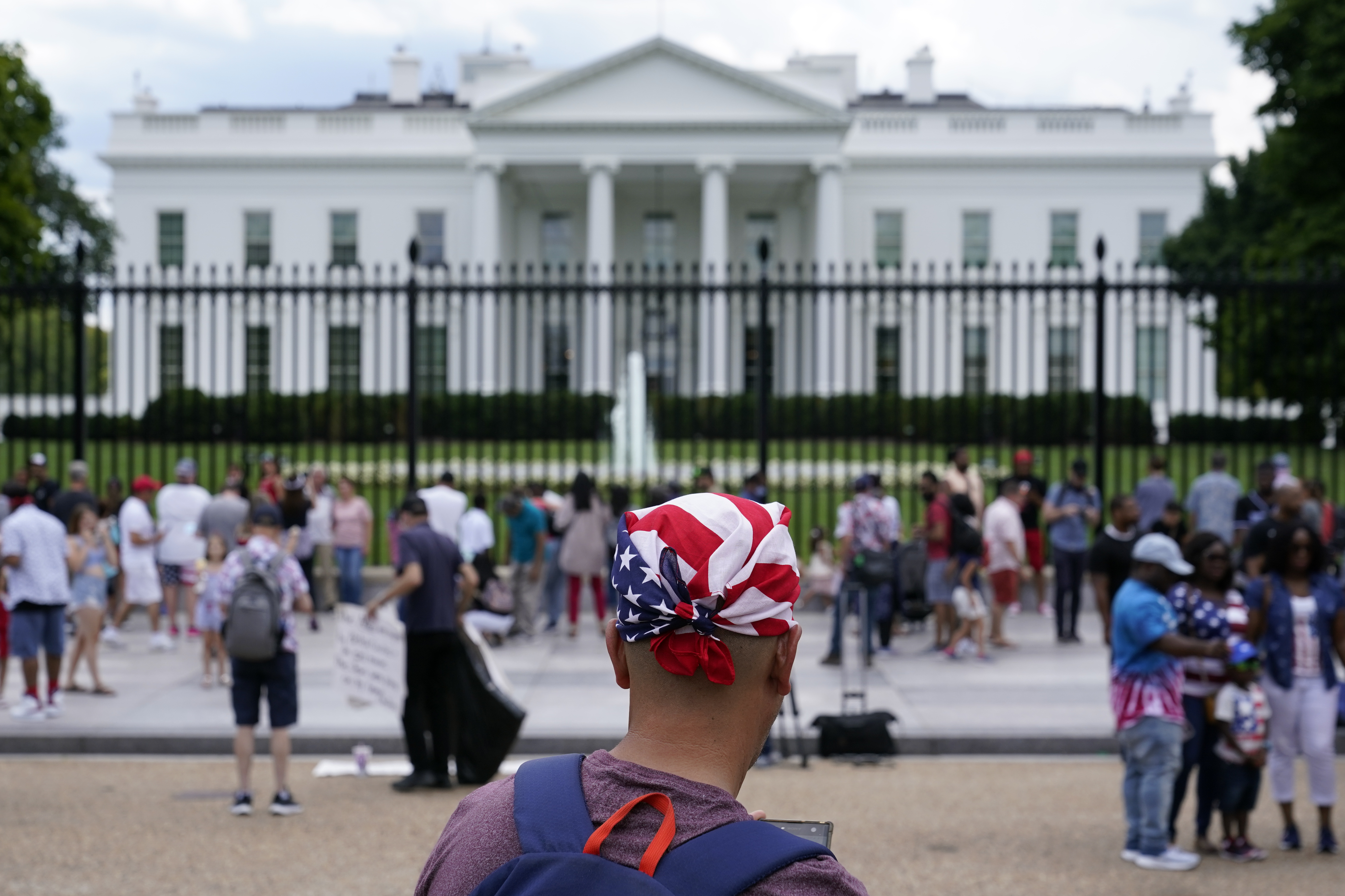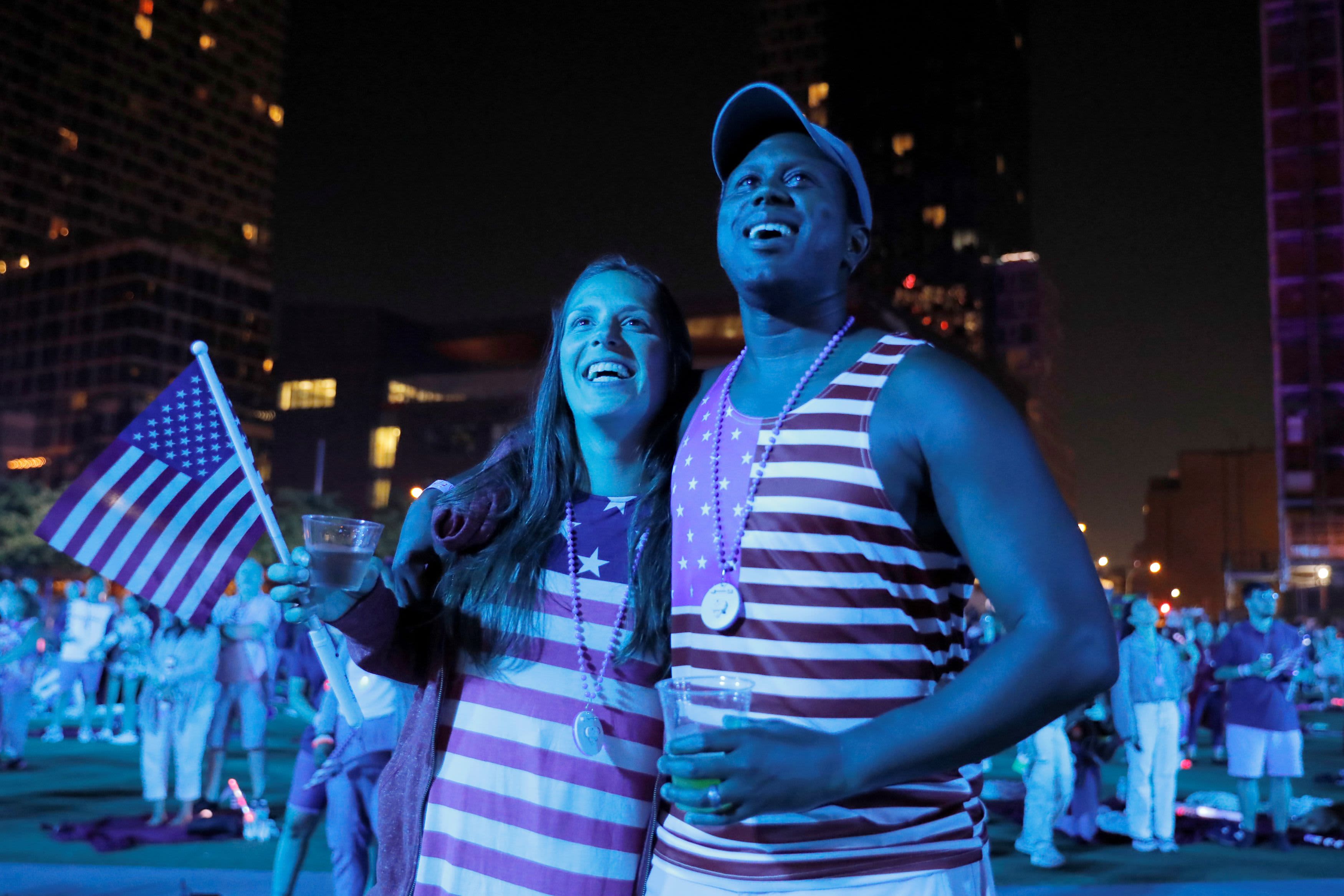The excitement on the National Mall was palpable Sunday as people gathered to celebrate Independence Day with friends and family.
From the Washington Monument to the U.S. Capitol building, local residents and visitors competed for shady spots and got together under umbrellas and on blankets to watch what the National Park Service promised would be the largest fireworks display in the entire country.
People were ready to get out and about and experience a more normal holiday after the pandemic shut celebrations down last year.
Photos: DC Celebrates Fourth of July With Larger Crowds Than Last Year
We're making it easier for you to find stories that matter with our new newsletter — The 4Front. Sign up here and get news that is important for you to your inbox.
“As normal as it’s gonna get, but you know, I think everybody is starting to feel a little bit more comfortable,” one man said. “I think America -- we’re getting back.”
Members of one family from Texas would be seeing the annual fireworks display for the very first time.
“It’s a blessing. It’s a blessing for everyone,” a woman said.
This year, NBC Washington brought you the 17-minute show live from the rooftop of 1331 Maryland Avenue SW.
The celebration started at 9:09 p.m. and the fireworks were launched from both sides of the Lincoln Memorial Reflecting Pool.
Before that, President Joe Biden called a vaccination “the most patriotic thing you can do,” during remarks at the largest event yet of his presidency, a barbecue on the South Lawn.
His speech celebrated freedom from the worst of the pandemic but also warned that the fight against the virus wasn't over, the Associated Press reports.
An Annual Ceremony Takes on New Meaning After the Jan. 6 Insurrection
At Congressional Cemetery on Capitol Hill, an annual Fourth of July ceremony honoring those who shaped and fought for the fledgling United States took on a modern significance Sunday.
Organizers paid tribute to the heroic efforts of D.C. and U.S. Capitol police officers for their work during the Jan. 6 insurrection. A commendation was presented posthumously to Officer Brian Sicknick, who died after the riot, and to Officer Eugene Goodman, who lured the mob away from members of Congress.
Members of different organizations come to the cemetery every Independence Day, gathering at the grave of Elbridge Gerry, a signer of the Declaration of Independence.
They recite an oath: “We, descendants of the heroes of the American Revolution, who by their sacrifices established the United States of American, reaffirm our faith in the principles of liberty and our constitutional republic.”
Those principles were tested six months ago within walking distance of the hallowed ground after a mob stormed the Capitol building. It adds another dimension to this year’s observance of the holiday.
“This would be an opportunity for every American to really look at, you know, the condition of the country and where we would like it to be,” D.C. Police Officer Mike Fanone, who was brutally beaten during the breach on Jan. 6, said. “There’s 849 other MPD officers that deserve to be standing here just as much as I do.”
Commendations for other D.C. and U.S. Capitol police officers were also presented, honoring them as latter-day counterparts of those who, in their era, defended the then-new U.S.
“I’ve been waiting many, many weeks to stand next to this officer, and I want you to know, I will shake your hand,” William O. Ritchie Jr., of the D.C. Sons of the American Revolution, said to Fanone.
Centuries ago, Elbridge Gerry, who’s name lives on through the term “gerrymander,” wouldn’t sign the Constitution because he didn’t think it did enough to protect individual and state rights.
Sunday’s ceremony featured both a history lesson and encouraging look toward the future, a chance to embrace “compassion and empathy rather than anger,” as Fanone said.




